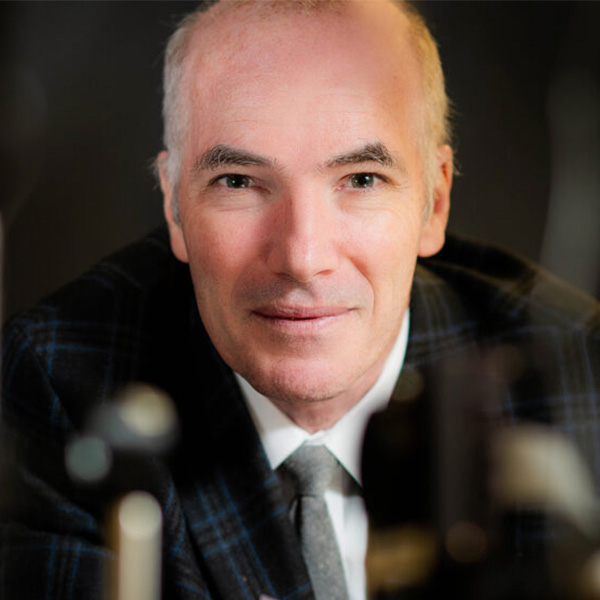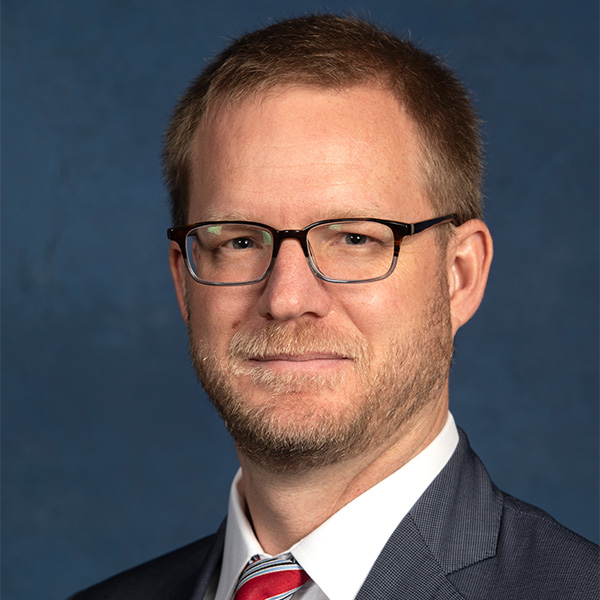President-Elect Melissa Gilliam Names New Provost, Fills Key Senior Staff Posts
Gloria Waters will be BU’s new provost; a new Office of Strategy & Innovation is in the offing

In changes and hires announced by President-elect Melissa L. Gilliam, Gloria Waters (from left) will become Boston University’s new provost and chief academic officer; Chris Sedore will lead BU’s Office of Information Services & Technology; and Christine Wynne will be chief of staff to the president. Photos by Jackie Ricciardi; courtesy of Sedore; BU Photography
President-Elect Melissa L. Gilliam Names New Provost, Fills Key Senior Staff Posts
Gloria Waters will be BU’s new provost; a new Office of Strategy & Innovation is being created
Melissa L. Gilliam, whose tenure as Boston University’s 11th president begins July 1, announced on Tuesday three critical appointments to her leadership team, along with the creation of a new office: Gloria Waters, who has led BU’s expansive growth in academic and scientific research for the last decade, will become the University’s provost and chief academic officer; Christopher Sedore, who has been vice president and chief information officer at Tufts University, will take over BU’s Office of Information Services & Technology, managing the University’s entire digital operation; and Christine Wynne, BU’s assistant vice president for presidential functions, will become chief of staff to the president.

Additionally, Gilliam announced that she is forming a new Office of Strategy & Innovation, and that she has hired two people from St. Louis University in Missouri to lead it—Kenneth Olliff, as the inaugural senior vice president of strategy and innovation, and Jasmin Patel as vice president of strategy. “The office will support faculty and the Boston University community to develop large-scale projects, build external partnerships, and bring new ideas to fruition,” Gilliam said.
The new hires, positions, and promotions mark initial steps by Gilliam to form her senior administration since she was announced as the University’s next president last year and became president-elect in January. In the year since Robert A. Brown stepped down after 18 years leading BU, Kenneth Freeman has served as president ad interim and College of Engineering Dean Kenneth Lutchen as interim provost. In an email to the BU community announcing the appointments, Gilliam thanked Lutchen for “his steady hand and thoughtful leadership over the past year.” Lutchen will continue to play a critical role in Gilliam’s administration, she said, joining her strategy team, and serving as a senior advisor to the president. (Elise Morgan, who took over from Lutchen at the College of Engineering, will continue as ENG’s dean ad interim.)
“Ken is an important part of BU’s community and history, as a superb faculty member, an outstanding dean, and a provost ad interim who helped to steer BU through a year of many challenges,” she said.
Gilliam said the last five months she’s spent meeting hundreds of people from the BU community, locally, nationally, and globally, have made her eager to officially begin her presidency. “These interactions have been stimulating and insightful,” she wrote. “I am impressed by this community, its accomplishments, and future promise.”
As provost, Waters will be the second-ranking officer within the University’s hierarchy. She will work closely day to day with the faculty, staff, and students in BU’s 17 schools and colleges and the Faculty of Computing & Data Sciences. And she will be a pivotal voice in identifying and helping to execute Gilliam’s strategic priorities.
Prior to her research role, Waters was dean of BU’s Sargent College of Health & Rehabilitation Sciences and a professor of speech, language, and hearing science. She led dramatic increases in the size, quality, and selectivity of Sargent’s undergraduate and graduate programs, enhanced student and faculty support, and doubled the volume of its research funding.
She has served as vice president and associate provost for research for 11 years, and during that time BU’s research expenditures (the amount spent on research) grew from $343 million to $554 million. Under Waters’ leadership, BU instituted external reviews of the University-wide research centers and restructured and added several new centers to BU’s portfolio. She has been instrumental in strengthening BU’s membership within the Association of American Universities (AAU), a consortium of 71 leading research universities that includes Stanford, Harvard, Yale, MIT, and Northwestern, among others, that “transform lives through education, research, and innovation.”

Waters’ role as head of BU research will be filled on an interim basis by Thomas Bifano, a College of Engineering professor of mechanical engineering, holder of 10 patents, and director of BU’s cross-disciplinary Photonics Center. Bifano, who will continue in that role, was recently named the University’s annual Innovator of the Year. Gilliam said that a national search for the next vice president and associate provost will begin this summer.
Gilliam said Waters has built “a responsive and agile administrative operation focused on advancing the work and careers of our researchers,” adding that “as provost, Gloria will focus on creating a collaborative, nimble, and proactive provost’s office that will enhance the experience and academic excellence of our faculty and ensure a high-quality experience for all students.”
Gilliam’s other internal move, promoting Christine Wynne (CAS’94,’20) to chief of staff, recognizes a longtime leader at BU. Wynne has been responsible for the strategy, production, and execution of institutional and presidential events and the oversight and management of Sloane House, the presidential residence.
Wynne has shepherded such high-profile events as Brown’s 2023 retirement ceremony and the announcement in 2022 of the transformative $100 million gift from alumnus Edward Avedisian (CFA’59,’61, Hon.’22) to BU’s Chobanian & Avedisian School of Medicine. “Each year, Christine programs over 100 events and works with virtually every school, college, and unit, as well as the University’s community of donors and supporters,” Gilliam wrote.
Through the initial meetings and conversations Gilliam has had both at the University and in her travels regionally, nationally, and globally, she said, she has been impressed and inspired by the innovation and collaboration across all of BU’s campuses. The new office of Strategy & Innovation is aimed at providing greater structure and support to bolster such innovation and collaboration.

Kenneth Olliff will report directly to Gilliam’s office and will be her point person on issues related to strategy, growth, and innovation, with special emphasis on collaboration. “Ken brings an important combination of experiences for advancing the University’s strategic vision across academics, research, and external and global engagement,” Gilliam wrote.
Jasmin Patel will work with Olliff to identify growth opportunities and foster innovation. “She brings particular expertise in creating interdisciplinary initiatives, building institutional capacity, and developing external strategic partnerships,” Gilliam said.
Olliff was vice president for research and partnerships at St. Louis University, and Patel was SLU’s associate vice president for research and chief of staff and was also deputy director of the SLU Research Institute.
Under Olliff’s leadership, St. Louis University doubled research expenditures and positioned the St. Louis region as a national geospatial center of excellence. He secured a $50 million gift that launched 10 new university-wide interdisciplinary research institutes and recruited or retained more than 70 outstanding faculty. In addition, he facilitated a legacy gift to launch the Taylor Geospatial Institute, an eight-university research consortium, whose governing council he chaired. Prior to his role at SLU, Olliff worked for more than a decade at the University of Chicago, including as associate vice president for program development in the Office of the Vice President for Research and National Labs.
Patel also worked at the University of Chicago, where she helped conceptualize and develop some of the school’s most important programs, among them the Institute for Molecular Engineering, the Becker Friedman Institute for Economics, and the Neubauer Collegium for Culture and Society.
Both Olliff and Patel worked with Gilliam at the University of Chicago, where Gilliam founded an interdisciplinary research center before she left to become the provost and executive vice president at Ohio State University.
Christopher Sedore, as BU’s head of IS&T starting August 1, will fill the role held for 14 years by Tracy Schroeder, who left BU this spring to become associate vice chancellor for information technology and chief information officer at the University of California, Berkeley. Leading IS&T impacts virtually every aspect of the University’s digital operations every second of every day, whether it’s a staffer logging into BUWorks, students entering their MyBU student portal or using their dorm Wi-Fi, faculty connecting to classroom Wi-Fi, or any community member zooming in to a meeting remotely or signing up to receive a vaccine.
“Chris will oversee a talented team of more than 400 IT professionals working across numerous areas throughout the University to support our educational and research mission,” Gilliam wrote.
At Tufts, Sedore managed a 280-person, $60 million IT organization, including administrative systems, clinical systems at veterinary hospitals and clinics, educational technology, research technology, information security, privacy, data strategy, and technology infrastructure.
Summing up her appointments and the various changes, Gilliam expressed her gratitude to Lutchen and to Freeman for their stewardship of the University and said she welcomed the new leaders and pledged to share her further impressions in the coming months.
Comments & Discussion
Boston University moderates comments to facilitate an informed, substantive, civil conversation. Abusive, profane, self-promotional, misleading, incoherent or off-topic comments will be rejected. Moderators are staffed during regular business hours (EST) and can only accept comments written in English. Statistics or facts must include a citation or a link to the citation.